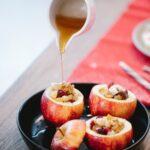Bouvardia includes about 50 species of herbaceous perennials that range in height from 1 to 4 feet. These tropical perennials thrive in USDA plant hardiness zones 9 through 11 but must be grown as annuals in temperate regions. They prefer full to partial sun and neutral to acidic soil. Trumpet-shaped flowers range from white and yellow to shades of pink and red and attract bees, butterflies, and hummingbirds. Here we’ll take you through everything you need to know about Bouvardia flower meaning, their botanical characteristics, popular types, and growing tips at home.
Bouvardia Flower – The Essentials
These showy flowers are native to Central America and Mexico. Bouvardia ‘ternifolia’ grows wild throughout the southwestern United States and blooms from midsummer to fall. According to floriography (the meaning and symbolism of flowers) bouvardia represents enthusiasm or a zest for life.
Bouvardia Taxonomy
Bouvardia is a member of the Rubiaceae or Madder family which includes the coffee plant as well as common madder. The genus bouvardia includes approximately 50 species. It is a close relative to the lovely gardenia flower.
Botanical Characteristics
These shrub or semi-shrub plants produce prolific blooms from mid-summer to fall that range in color from white and yellow to shades of red and pink. Trumpet-shaped flowers attract hummingbirds and butterflies and provide nectar and pollen for bees and other pollinators. Bouvardia emits a light fragrance that is more pronounced at night.
Popular Bouvardia Flower Types, Species, and Cultivars
Bouvardia longiflora, B. ternifolia or B. leiantha are the most common species of bouvardia grown as ornamentals or for florist flowers. Also known as the Firecracker Bush or Hummingbird Flower, Bouvardia ‘ternifolia’ is favored for garden growing as its brilliant red flowers create a fiery display of color in the summer sun.
Uses and Benefits of Bouvardia Flowers
- Bouvardia is prized as a cut flower or ornamental flower for garden beds. It is often included in wedding arrangements or other special occasion bouquets.
- Bouvardia can be grown as a houseplant. Look for varieties labeled as houseplants in nurseries and garden centers.
- It attracts bees and flying insects making it a superb addition to flowerbeds to attract pollinators to summer gardens and fruiting trees and bushes
The Meaning, Symbolism, and Cultural Significance of Bouvardia Flowers
Bouvardia flowers are prized by the floral industry because they are readily available throughout the year and because the blooms are long-lasting. Cut flowers last for 2 to 3 weeks in a vase. The shape of the flowers and its evergreen foliage make this an outstanding filler in large floral displays and contrasts nicely with a variety of other shapes and colors.
Wrap Up
Growing bouvardias in the landscape is more common in the south, but it can make a striking statement in northern gardens too. These tender perennials can be grown in containers and overwintered inside. To overwinter bouvardia, cut the foliage back to a few inches when temperatures drop below 50 degrees in the fall. Move it inside and keep the soil moist during the winter. Although it may go through a period of dormancy, new growth will appear in the spring. Move it back outside in the spring after all danger of frost has passed and daytime temperatures remain in the 60s.
By: Idris Saify
Content Writer (Erakina By RTMN)
16/12/2021






